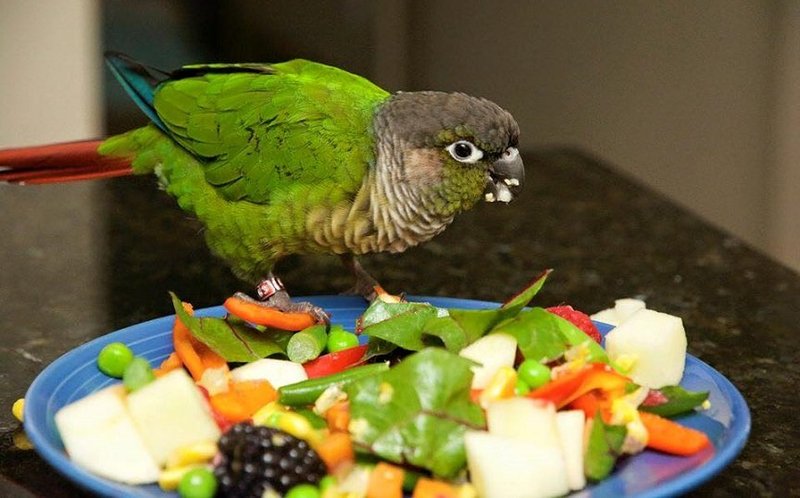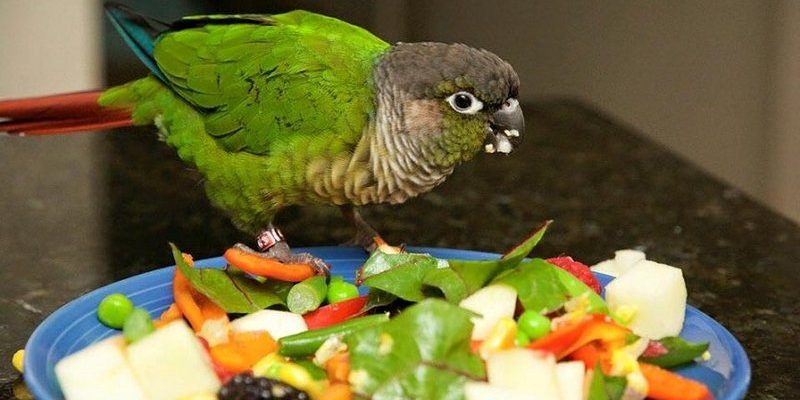
Conures are playful, social birds, and they tend to have hearty appetites. Their diets can include seeds, fruits, vegetables, and even some grains. But figuring out what to feed them can feel overwhelming. Let me explain the best practices for nourishing your conure while also keeping in mind their unique nutritional needs.
The Basics of a Conure Diet
When considering what conures eat, it’s essential to start with the basics. Conures typically enjoy a seed-based diet, but it’s important not to rely solely on seeds. Seeds can be high in fat and low in essential nutrients, which can lead to health issues if they dominate your bird’s diet. Instead, think of seeds as a tasty treat—something to include, but not the main course.
A good conure diet should include:
- Fruits: These are great for hydration and vitamins. Opt for things like apples, pears, berries, and melons.
- Vegetables: Leafy greens, such as kale and spinach, are fantastic, along with carrots and bell peppers.
- Pellets: High-quality pellets can provide balanced nutrients and serve as a staple for your bird.
- Nuts and seeds: These can make great snacks but feed them in moderation.
You might be wondering, why not just feed them seeds? It’s simple: a diverse diet helps ensure that your conure gets a balance of vitamins, minerals, and other essential nutrients that seeds alone can’t provide.
Fruits: A Sweet Addition
Fruits are not just a delightful treat for your conure; they offer valuable nutrients. Fresh fruits are packed with vitamins and antioxidants, making them a tasty and healthy addition to your bird’s diet. Just like a good fruit salad, a mix of different fruits can keep things interesting!
Some excellent fruits for conures include:
- Apples: Avoid seeds; they contain cyanide.
- Bananas: A great source of potassium and easy to eat.
- Berries: Blueberries and strawberries are full of antioxidants.
- Melons: Watermelon and cantaloupe keep your conure hydrated.
Cut fruits into small pieces to make them easy for your conure to nibble on. Just be sure to wash everything thoroughly before serving, as pesticides can be harmful.
Vegetables: Crunchy and Nutritious
Next up, we have vegetables, which can be the crunchy sidekick to your conure’s meals. Just like humans benefit from eating a colorful variety of veggies, so do our bird pals! Veggies provide essential fiber and help with digestion.
Some bird-friendly vegetables include:
- Kale: A nutrient powerhouse packed with vitamins.
- Carrots: Rich in beta-carotene, and they can be served raw or cooked.
- Bell peppers: These bright beauties are full of vitamins A and C.
- Zucchini: A great summer vegetable that offers hydration and vitamins.
Try offering vegetables fresh and chopped into manageable pieces. They can even be a fun foraging activity—hide them around their cage and watch your conure go on a little adventure!
Pellets: A Balanced Foundation
While fruits and veggies are delightful, pellets play a crucial role in a balanced diet. Think of pellets as the reliable base of your conure’s nutritional pyramid. They’re designed to offer essential nutrients in one easy package.
When choosing pellets for your conure, look for:
- High-quality brands: Avoid fillers and artificial colors.
- Variety in shapes and sizes: This can keep your bird engaged while eating.
- Specific formulas: Some brands cater specifically to conures.
You might want to gradually introduce pellets into your conure’s diet, especially if they’re used to eating seeds. Mix pellets with seeds and fruits to help them adjust.
Nuts and Seeds: The Treats
Let’s be real—who doesn’t love a good nut or seed? These can be tasty treats for your conure, but they should be offered in moderation. Nuts are high in fat, so think of them like dessert—a little goes a long way!
When offering nuts, consider:
- Almonds: A healthy option, but offer them sparingly.
- Walnuts: Rich in omega-3 fatty acids, which are good for feather health.
- Sunflower seeds: While tasty, they should be given as an occasional treat due to their fat content.
Watch for your conure’s reaction when you offer nuts—they may not be able to resist! Just keep track of how much they consume to maintain a healthy diet.
Water: The Forgotten Essential
Let’s not forget about water! Just like you, your conure needs access to fresh water every day. Hydration is key to their health and well-being.
Make sure to:
- Change water daily: Clean, fresh water is essential.
- Use a shallow bowl: This helps prevent spills and keeps the area clean.
- Monitor their intake: If you notice drastic changes in drinking habits, it’s wise to consult a vet.
Honestly, skipping water can lead to serious health issues, so always keep that bowl filled!
Foods to Avoid
Not all foods are safe for your feathery friend. Just like you’d avoid certain ingredients in your meals, there are things you should steer clear of when it comes to feeding your conure.
Here’s a list of common foods that can be harmful:
- Avocado: This can be toxic to birds.
- Caffeinated beverages: Keep them far away from your conure.
- Chocolate: A big no-no; it’s toxic.
- High-fat or sugary snacks: These can lead to obesity and health problems.
Be cautious and stick to the safe foods we’ve discussed. It’s better to be safe than sorry!
Feeding your conure is a bit like crafting a delightful buffet—variety, balance, and nutrition are key. By offering a mix of fruits, vegetables, pellets, and occasional treats, you’ll keep your vibrant companion happy and healthy. Remember, it’s all about balance. Too much of anything can lead to problems, so aim for a diverse diet.
Now that you know what to feed your conure, you can create meals that not only nourish but also excite them. You’ll be amazed at how curious and happy your little bird becomes when you provide a colorful array of tasty options. So grab those fresh fruits and veggies, and watch your conure enjoy their meals!

